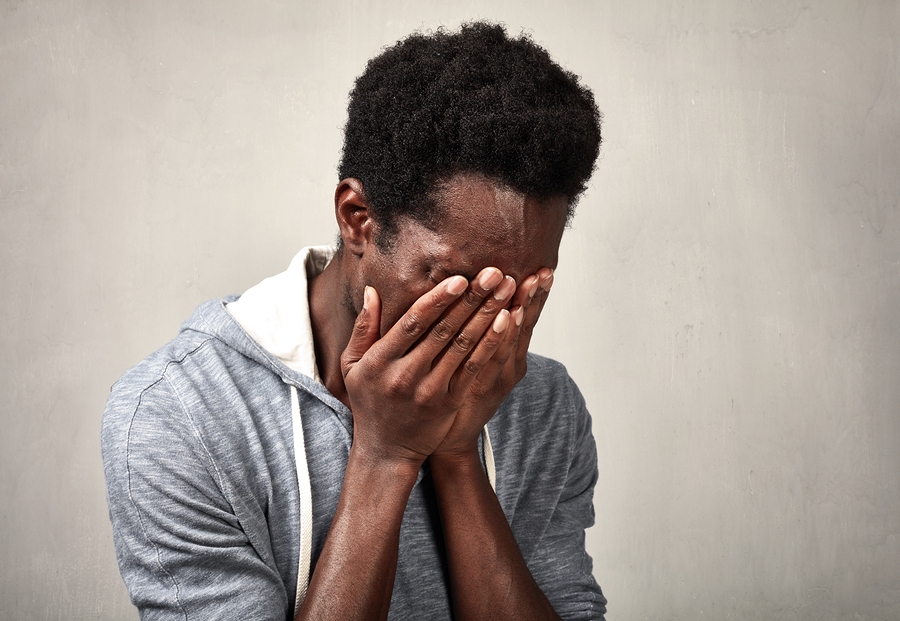
Anxiety is an issue that most people face occasionally when they are dealing with a difficult situation or an upcoming event that is important to them. Feeling anxious once in a while is a normal and natural part of life but having anxiety that becomes overwhelming can cause a lot of personal problems. People with crippling anxiety may find it hard to even get through their daily routine.
People who have normal anxiety levels will experience a natural reaction to events that make them nervous or frightened. The instinctive “fight or flight” response may make our hearts beat faster or our hands sweaty because of an adrenaline rush in the body. This reaction can actually help motivate us at times so that we can prepare for a big meeting, an interview or other important moments.
However, when anxiety is not a natural reaction to specific events or seems incongruous with the actual situation it can signal a potential anxiety disorder. When someone feels so anxious that they cannot make it to the interview or they choose to avoid certain people or places because they trigger anxiety then they may need to get help. Crippling anxiety can be more intense physically than normal anxiety and it can occur more frequently and seemingly at random.
Avoidance and Anxiety Symptoms
When someone’s anxiety is so overwhelming that it begins to interfere with their ability to manage day to day activities and keeps them from going places or doing things they need to do then it must be treated professionally. An anxiety disorder is a serious issue but people can improve their symptoms through therapy and treatment. They can begin to learn various strategies to help deal with their anxiety and make life more manageable.
One of the main issues that can reinforce and increase anxiety is the tendency for people to avoid the things that make them feel nervous. It may feel natural and soothing to allow yourself to opt out of something that you know will make you feel uncomfortable. This tactic of avoiding anxious situations can be problematic especially if they are situations that are not actually as threatening or scary as the anxious person believes.
The more often a person avoids the places, people or situations that give them anxiety the more it reinforces the idea that they can’t handle those things and must stay away. It becomes a never-ending cycle of anxious feelings and avoidant behavior that only gets worse over time. Anxiety becomes crippling when a person begins to see more situations as threatening and feels uncomfortable so often that they can’t sort out what they should feel nervous about what they shouldn’t.
Facing Fears and Dealing with Symptoms
Coping with anxiety often means allowing yourself to experience the anxiety in the situation and using strategies to get through it. If you never let yourself be in the situation that is making you afraid then you will never be able to realize that it is not a true threat. Avoiding situations allows anxiety to build up and become bigger than it needs to be.
One confusing aspect of having anxiety is not knowing exactly which situations you need to be afraid of and which ones are harmless. Talking to friends, family or a therapist can help you gain perspective on your anxiety and see things from their point of view. They may be able to convince you that the things you are anxious about are really no big deal.
When you understand that certain anxieties that you have are unfounded you can learn to face them by practicing tactics designed to reduce your physical symptoms and help you “ride out” the anxious feelings when you are in the situation. Relaxation and breathing techniques can be very useful in easing anxiety when it is at its most intense. Your therapist can help you find the techniques that work best for you.
Breathing work can be helpful for anxiety because it is the tendency for anxious people to have very shallow, short breaths when they are feeling nervous or stressed out. This type of breathing keeps the body tense and alert which can worsen anxiety. Deep breathing exercises can help produce a feeling of calm relaxation that minimizes feelings of fear, stress and nervousness.
You can also talk to your psychiatrist about whether anxiety medication might be a good option for you. Medication does not permanently resolve anxiety but it can provide some relief for people who experience panic attacks and very severe anxiety issues. Medication may be a useful temporary solution while you are doing work in therapy and getting better.
If you have anxiety problems that interfere with your daily life then take steps to improve your symptoms through professional treatment. Contact a therapist or treatment center today to learn how to cope with anxiety.